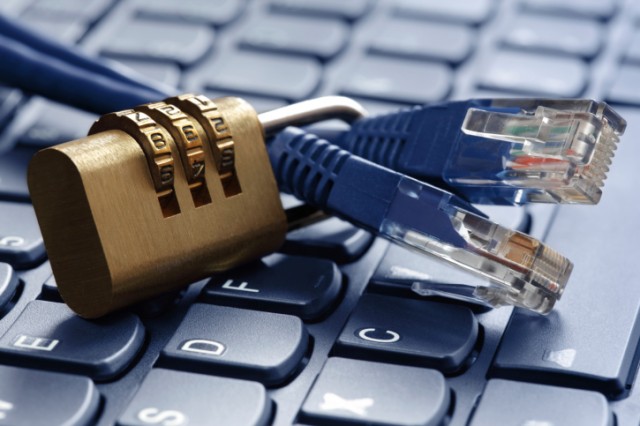5 ways to protect your money online
In a security survey asking why people complete their shopping online, 73 percent of respondents cited saving time as the primary reason.
 Shopping online can so easily be completed from a smartphone or tablet that its prevalence is rapidly increasing. One report expects e-commerce revenues to more than double between 2012 and 2018.
Shopping online can so easily be completed from a smartphone or tablet that its prevalence is rapidly increasing. One report expects e-commerce revenues to more than double between 2012 and 2018.
With identity theft cited as the Federal Trade Commission’s top consumer complaint for 13 years in a row, people have valid reason to be concerned about entering credit card numbers, addresses, and other personal information into a website form. When online shopping, consumers face dangers ranging from a slow-running PC to obtaining a computer virus to more serious security risks, like identity theft. There are, however, ways you can decrease your risk.
1. Read, read, read
It’s crucial to read all of the fine print before you make an online purchase. This includes shipping policies, return policies, terms, and conditions. Some purchases are designed to renew monthly, charge your account each month, and send the product on a recurrent cycle. Others, particularly software and game downloads, have additional items attached to the purchase that you may have to opt out of.

T. O’Malley is a Savannah, Georgia-based computer repair professional with close to 10 years of experience in this area. He says he sees frequently sees consumers with PC problems as a result of disregarding the fine print. Oftentimes, “People don’t read before clicking next,” he says. “They don’t realize they are giving permission to install toolbars and additional search engines (that result in) a slow computer.”
2. Pay with a credit card
McAfee also suggests using a credit card, as opposed to a debit card or wire transfer. When you pay with a credit card, you have legal protection against fraud, limiting your liability. If you report a credit card lost or stolen, the law says you are not responsible for charges you did not make, and your liability for each card stolen is only $50, which most card issuers waive. However, a debit card transaction removes the money straight from your account, and getting it back in the event of a fraud situation is a bit more difficult. Your liability with a debit card depends on how soon you report the situation. Wire transfers also offer less protection, as the money goes straight from your account into the merchant’s.
3. Know your seller
A publication by McAfee discusses how it’s essential to ensure that a website you are buying from has an encryption. Signs of a safe website include a closed lock symbol, a key symbol, or a Web address that begins with https:// instead of http://. “Don’t buy from spammers,” McAfee asserts in its publication.
“The big ones are generally fine,” O’Malley said. “Amazon, for instance, is safe in regard to viruses.” “Generally,” however, is the key word in that message. With Apple’s recent iCloud breach, we should use caution and promote the safety of our information, even when dealing with familiar businesses. O’Malley also brought up the topic of “coupon printers” that allow consumers to print out coupons from their home PC. “They are mostly just adware, and when people get a virus, they do not know how to get rid of it,” he says. “Flash update viruses are also common.” He adds, “Most people don’t realize how to spot a fake. To ensure you are downloading from a safe source, “go straight to Adobe to download the update.”

4. Inspect and hold on to documentation
It’s a good idea to thoroughly review the receipt issued by a merchant. You may also want to keep your receipts for online purchases together in a specific place so that you have a record of your transactions. You can then compare these receipts against your monthly credit card statement to ensure no discrepancies are present.
5. Check out your goods
When your items arrive, examine the contents of your packages immediately. This way, you can notify the seller quickly in the event of a problem with the product. The Internet has made it so that you can buy virtually anything from your living room, but internet security doesn’t provide the highest level of protection. But if caution is not exercised, negligent online shopping can hurt your wallet. Computer virus removal generally costs at least $150. And if your bank or identity information is stolen online, the cost can be limitless. There are some tips for you to follow in order to protect your credit cards.
Axarhöfði 14,
110 Reykjavik, Iceland














